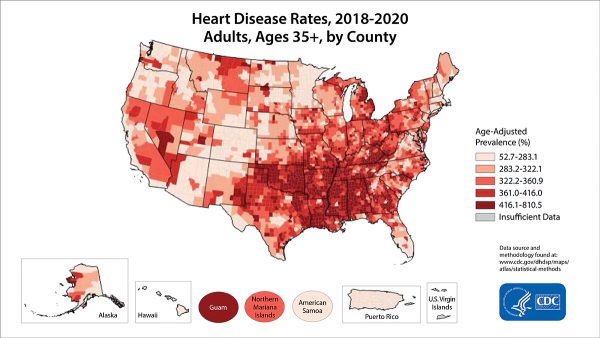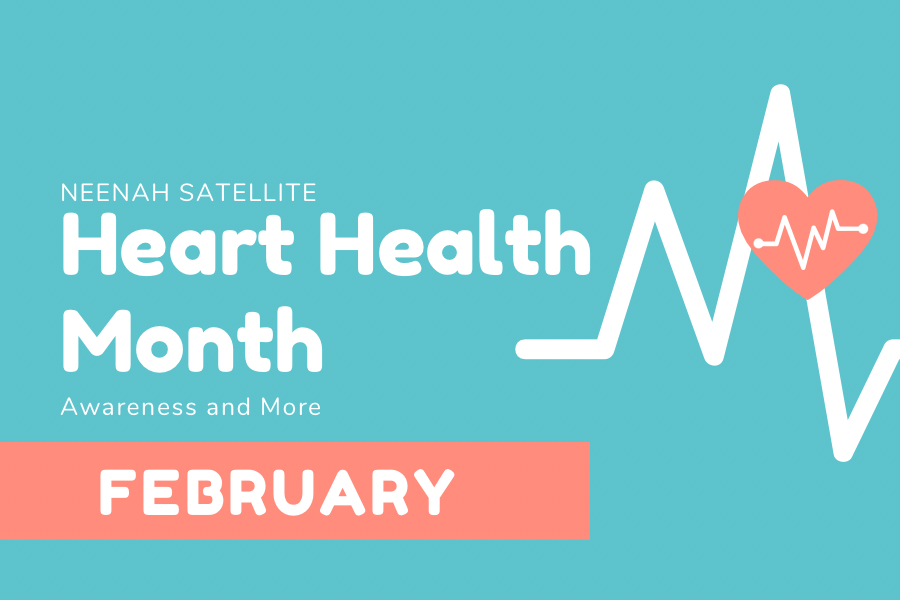Heart disease is the leading cause of death in the United States. Each February, the American Heart Association (AHA) dedicates the month to raising awareness about heart health and educating the public on ways to prevent cardiovascular disease.
Locally, initiatives like heart walks help to raise awareness and inspire action. One such event is the 2025 Dubuque Area Heart Walk. Taking place on Saturday, May 3, at the Dubuque Arboretum & Botanical Gardens. For more information, visit the AHA Heart Walk page.
However, even outside organized events, there are simple actions you can take to prioritize your heart health this February. Whether it’s adjusting your diet, incorporating more exercise, or scheduling a blood test, small steps can make a big difference. Here’s how you can get started:
Diet:
Eating a balanced diet is crucial for heart health. Incorporating vegetables and fruits into your meals can provide important nutrients like vitamin K and potassium, both of which are beneficial for blood pressure regulation. Legumes and beans are also heart-healthy options, as they are high in protein and fiber. Interestingly, pairing beans with a vitamin C-rich food like an orange can enhance protein absorption, making it comparable to the protein from meat—without the saturated fat. Though indulging in sweet treats is tempting, starting with small changes to your diet can help form lasting healthy habits that benefit your heart.
Exercise:
Exercise doesn’t have to be strenuous to benefit your heart. If you struggle with time or energy, start small—simple activities like walking up and down the stairs or walking in the pool at your local YMCA can help. The key is consistency. Cardiovascular exercise, which includes any activity that gets your heart rate up or makes you sweat, is essential for a healthy heart.
Blood Tests:
For those who aren’t afraid of needles, blood tests are becoming an increasingly popular way to monitor heart health. Many insurance providers now cover routine blood panels for preventative care. Even if you feel perfectly healthy, consider asking your doctor for a baseline panel. This simple test can give you a clear picture of your current health and help identify areas that may need attention to ensure a long, healthy life.
For additional heart health tips, check out Ten Ways to Improve Your Heart Health
Heart Disease Statistics:
According to the CDC, heart disease rates in many local areas are nearing alarming levels. While the statistics from five years ago show a prevalence of 322.2%, the rate is likely approaching 416.1%. This highlights the urgent need for preventive action to reduce our risk of heart disease in the future.

The Future of Cardiovascular Care:
There is hope for the future of cardiovascular care, especially with advancements in technology. Institutions like the Mayo Clinic are using artificial intelligence (AI) to help identify individuals at risk of heart disease and strokes. While these innovations are exciting, it’s still essential to take charge of your heart health today.
Finding Inspiration to Make a Change:
It can be difficult to stay motivated, especially if you feel healthy now. But maintaining heart health is about preventing issues before they arise. One way to find inspiration is through health-related podcasts. For example, On Purpose with Jay Shetty offers advice on making lifestyle changes for a healthier life.
Remember, your heart and brain are essential to keeping you alive, and the choices you make now will affect how you feel in the future. By prioritizing heart health this February, you can improve your overall quality of life. Start today, and make heart health a lifelong commitment.
Works Cited:
“American Heart Association Heart Walk.” Heart.org, 2025, www2.heart.org/site/TR/HeartWalk/MWA-MidWestAffiliate?fr_id=11473&pg=entry. Accessed 2 Feb. 2025.
“Cardiovascular Medicine – Department Home.” Mayo Clinic, 2024, www.mayoclinic.org/departments-centers/cardiovascular-medicine/. Accessed 2 Feb. 2025.
Centers for Disease Control and Prevention. “FastStats – Heart Disease.” Centers for Disease Control and Prevention, 2022, www.cdc.gov/nchs/fastats/heart-disease.htm.
American Heart Association. “The Ten Ways to Improve Your Heart Health Infographic.” Www.heart.org, www.heart.org/en/healthy-living/healthy-eating/eat-smart/nutrition-basics/the-ten-ways-to-improve-your-heart-health.



















